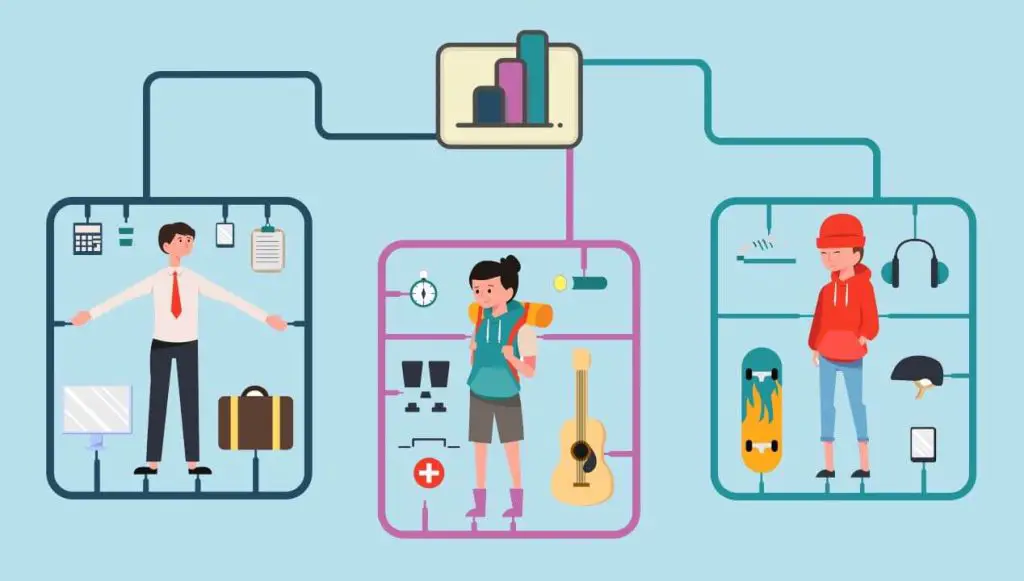Implementing Chat-GPT in Retail: Personalization and Customer Insights

The integration of Chat-GPT in the retail sector holds immense potential to revolutionize the shopping experience by offering personalized recommendations, enhancing customer engagement, and extracting valuable insights for businesses.

Personalized Recommendations:
Chat-GPT enables retailers to deliver tailored recommendations to individual customers based on their browsing history, purchase data, and preferences. By leveraging machine learning algorithms, it analyzes customer behavior, identifies patterns, and suggests products that align with their unique needs. This personalization not only enhances the shopping experience but also increases conversion rates.
Enhanced Customer Engagement:
Chat-GPT serves as a virtual shopping assistant, engaging customers in real-time conversations. It provides prompt responses to queries, resolves product inquiries, and offers assistance in finding the most suitable options. This personalized interaction strengthens customer relationships, fosters brand loyalty, and improves overall satisfaction.
Valuable Customer Insights:
Analyzing the transcripts of customer conversations with Chat-GPT provides retailers with a treasure trove of insights into their preferences, concerns, and buying patterns. This data can be leveraged to identify trending products, tailor marketing campaigns, improve product offerings, and optimize the entire shopping journey.
Additional Benefits:
Beyond personalization and customer insights, Chat-GPT in retail offers a range of other benefits:
- Increased Accessibility: Chat-GPT provides round-the-clock customer support, extending the reach and accessibility of retail businesses.
- Cost Reduction: Virtual assistants powered by Chat-GPT can handle a significant portion of customer inquiries, reducing the workload on human agents.
- Improved Efficiency: Automating customer interactions and product recommendations streamlines retail operations, saving time and resources.
Implementation Considerations for Retailers:
To harness the full potential of Chat-GPT in retail, businesses should consider the following:
- Clear Objectives: Define the specific goals for implementing Chat-GPT (e.g., enhanced personalization, increased engagement).
- Data Integration: Ensure seamless integration of customer data (e.g., purchases, preferences) into the Chat-GPT engine.
- Model Optimization: Train and fine-tune the Chat-GPT model based on industry-specific requirements.
- Continuous Evaluation: Track key performance indicators to assess the effectiveness of Chat-GPT and make necessary adjustments.
In conclusion, implementing Chat-GPT in retail unlocks a wide range of opportunities to enhance the customer experience, gain valuable insights, and boost business outcomes. By leveraging its capabilities in personalization, engagement, and data analysis, retailers can stay ahead of the curve and deliver a superior shopping experience that drives loyalty and profitability.Implementing ChatGPT in Retail: Personalization and Customer Insights
Executive Summary
ChatGPT, the revolutionary language model, presents immense potential for the retail industry. By integrating ChatGPT, retailers can enhance customer experiences through personalized engagements and gather valuable insights to drive business growth.
Introduction
The retail landscape is undergoing a digital transformation, with ChatGPT emerging as a game-changer. This advanced AI technology empowers retailers to interact with customers in a more human-like manner, providing personalized recommendations and valuable insights into customer preferences and behaviors.
FAQs
1. What is ChatGPT, and how can it benefit retail businesses?
ChatGPT is a large language model trained by Google that can generate human-like text, translate languages, write different kinds of creative content, and answer complex questions. It can help retailers automate customer interactions, personalize experiences, and gain insights into customer behavior.
2. How can ChatGPT be integrated into retail operations?
ChatGPT can be integrated through various channels, such as the retailer’s website, mobile app, or even physical stores via smart assistants. It can serve as a virtual assistant, answer customer inquiries, and provide personalized product recommendations.
3. What are the potential risks and challenges of using ChatGPT in retail?
While ChatGPT offers numerous benefits, there are potential risks to consider, such as data privacy concerns, the accuracy and reliability of the information it provides, and the potential for bias in its recommendations.
Top 5 Subtopics
1. Personalized Customer Engagement
- Real-time assistance: ChatGPT can provide instant support to customers on the website, answering questions and offering assistance.
- Personalized recommendations: Based on a customer’s browsing history and preferences, ChatGPT can recommend relevant products and services.
- Conversational commerce: Customers can engage in natural language conversations with ChatGPT to purchase products, schedule appointments, or resolve issues.
- Sentiment analysis: ChatGPT can analyze customer conversations to gauge their情绪 and identify areas for improvement.
- Personalized marketing campaigns: ChatGPT can help create personalized marketing campaigns tailored to each customer’s interests and preferences.
2. Enhanced Customer Experience
- Omnichannel support: ChatGPT can provide consistent customer support across multiple channels, including website, chat, email, and social media.
- 24/7 availability: ChatGPT is available 24/7, providing assistance whenever customers need it.
- Reduced wait times: ChatGPT eliminates long wait times for customer support, leading to increased customer satisfaction.
- Improved self-service options: ChatGPT empowers customers to find answers and solve issues independently through self-service knowledge bases.
- Seamless transition to human support: ChatGPT can seamlessly transfer customers to human support agents when necessary, ensuring a smooth and efficient experience.
3. Data Collection and Analysis
- Customer segmentation: ChatGPT can help retailers segment customers based on their demographics, interests, and behaviors.
- Customer feedback analysis: ChatGPT can analyze customer feedback, identifying common issues and areas for improvement.
- Product recommendations based on customer insights: By analyzing customer data, ChatGPT can provide personalized product recommendations that align with their preferences.
- Sales forecasting and inventory optimization: Data insights from ChatGPT can help retailers forecast sales trends and optimize inventory levels to avoid overstocking or shortages.
- Competitor analysis: ChatGPT can track and analyze competitor data to identify opportunities for differentiation and market growth.
4. Process Automation
- Automated responses to common inquiries: ChatGPT can automate responses to frequently asked questions, freeing up human support agents to focus on complex issues.
- Order processing and fulfillment: ChatGPT can streamline order processing and fulfillment, reducing errors and improving efficiency.
- Inventory management: ChatGPT can assist with inventory management, including tracking stock levels, managing product catalogs, and generating purchase orders.
- Customer onboarding and account management: ChatGPT can automate customer onboarding and account management tasks, providing a seamless experience for new customers.
- Promotions and loyalty programs: ChatGPT can help retailers manage promotions and loyalty programs, sending personalized offers and updates to customers.
5. Innovation and Competitive Advantage
- Early adoption of emerging technology: By embracing ChatGPT, retailers can establish themselves as early adopters and gain a competitive edge.
- Personalized experiences at scale: ChatGPT enables retailers to provide personalized experiences to a large number of customers, enhancing brand loyalty.
- Improved customer satisfaction and retention: ChatGPT’s ability to provide efficient and personalized support leads to increased customer satisfaction and retention.
- Data-driven decision-making: The data insights generated by ChatGPT empower retailers to make data-driven decisions that drive business growth.
- Differentiation from competitors: ChatGPT’s unique capabilities allow retailers to differentiate themselves from competitors and capture a larger market share.
Conclusion
The integration of ChatGPT in retail has the potential to revolutionize the industry. Its ability to personalize customer engagements, gather valuable insights, and automate processes can help retailers deliver enhanced customer experiences, optimize operations, and gain a competitive advantage in the digital age. By leveraging the power of ChatGPT, retailers can create a frictionless and personalized shopping journey that meets the evolving needs of today’s customers.
Keyword Tags:
- ChatGPT for Retail
- Customer Personalization
- Retail Customer Insights
- Process Automation in Retail
- Innovation in Retail


